Sir Jackie Stewart on the late Queen: She moved draught pieces around like a machine gun
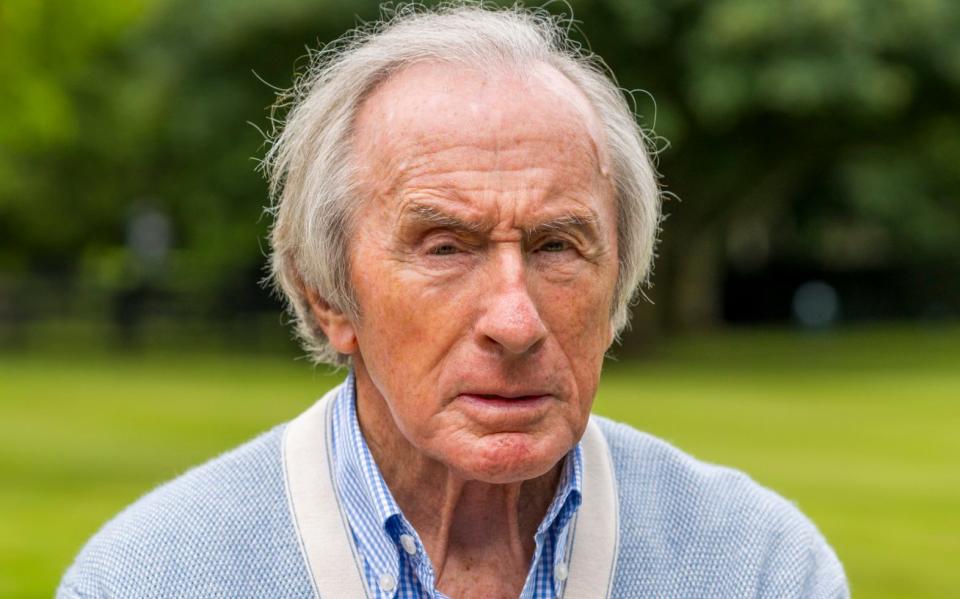
Sir Jackie Stewart is convinced he is going to get dementia. As the Formula One motor racing legend’s wife Helen, who was diagnosed with the insidious disease nearly a decade ago, is being nursed in a nearby room, he suddenly declares: “You know, I could easily have it. I’ve got all the makings of it. I’m forgetting people’s names occasionally and I’m not as sharp as I was. If I have it, I have it.
“I’m still fully operational,” he insists, despite suffering a mini stroke six weeks ago while in Jordan before the wedding of Crown Prince Hussein, the eldest son of King Abdullah II and Queen Rania.
“I’m not suggesting that I do have it. But I probably will get it. Dementia is the leading cause of death in the UK. For everyone born today, one of the three will die of dementia.”
It is a frightening statistic that became a reality for the Stewart family in 2014, when they were not only given the devastating news that Lady Stewart, 82, had frontotemporal dementia – but that there was no cure.
Having met as teenagers at Dino’s café in their hometown of Helensburgh in Dunbartonshire in Scotland, Lady Stewart became the stopwatch of her husband’s life for over 60 years – her razor-sharp mind literally timing his laps to the millisecond with unfaltering accuracy.
The couple, who have two sons and nine grandchildren, travelled the world together as Sir Jackie competed in Formula One between 1965 and 1973, winning three World Drivers’ Championships and twice finishing as runner-up over those nine seasons. Nicknamed the “Flying Scot”, he was the only British driver to win three championships until Lewis Hamilton in 2015. At 84, he is the oldest living Formula One winner and with his penchant for tartan hats and matching trousers, remains a distinctive trackside presence. After his retirement from racing in 1973, Lady Stewart supported his successful campaigning for greater safety – on the racetrack and on the roads – often joking: “Without me, he wouldn’t be World Champion!”
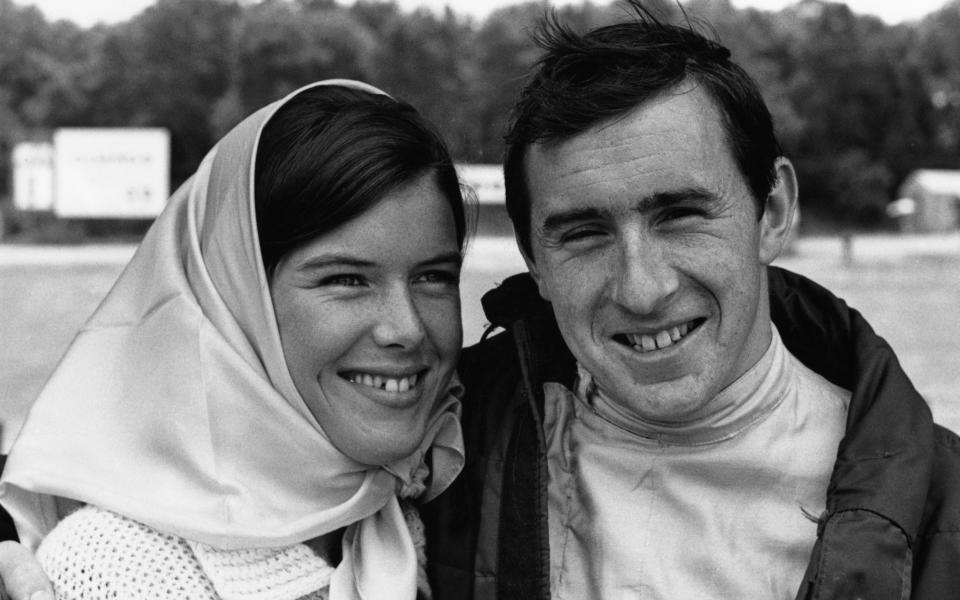
But it was after Lady Stewart had an unexplained car crash in 2014, despite the road being clear, that they began to suspect something was amiss. Later that year, she got the diagnosis at a routine health check. Sir Jackie insists all his friends and family undertake an annual MOT at the world-renowned Mayo Clinic in Rochester, Minnesota – a move that saved his elder son Paul’s life when he was diagnosed with non-Hodgkin’s lymphoma in his colon in 2000, aged 34.
Lady Stewart receives around the clock nursing care from seven neuroscience nurses wherever they are in the world – be it in Buckinghamshire or their four-storey Lake Geneva home in Switzerland which he has had kitted out with state-of-the-art sensors to ensure Lady Stewart doesn’t stumble when she’s awake at night.
We meet at Clayton House, the couple’s sumptuous home nestled in 140 acres of the Chiltern Hills. Bought in 1996, it is the former game farm of the Prime Minister’s neighbouring country retreat Chequers. Served by a butler – one of more than a dozen household staff that attend to the Stewarts’ daily needs – the house is packed with photographs and mementoes from the couple’s extraordinary life in the fast lane. Scattered around the immaculately mowed lawns are 57 wooden benches, each carved with the name of a past racing figure whom Sir Jackie has known. On the main patio sit a bench dedicated to his “friends”, Queen Elizabeth II and the Duke of Edinburgh, who would regularly visit for lunch.
“The hardest part was being told that there was nothing we could do about it,” says Sir Jackie. “I knew nothing about dementia before Helen was diagnosed. And when I asked them: ‘When can we get something done about it?’ and they said: ‘I’m sorry Jackie, we don’t have a cure for it.’ That was just devastating.”
Instilling a Formula One attitude of lateral thinking and pace, Sir Jackie established Race Against Dementia in 2016. The global charity funds and trains the world’s brightest dementia research scientists, supporting their work with £500,000 over a five year programme to develop them as leaders in their field. The training is centred around teamwork, innovation, resilience and attention to detail.
“I started to realise the power that Formula One had in terms of Helen’s illness,” he explains. “When you’re a racing driver, everything happens very quickly. In Britain, we are leading the world in terms of the technology. And when I compare that with me coming into a situation with my wife of 60 years as it is at the moment – I can’t believe that for something taking more lives than anything else in the world right now, including cancer, we are so far behind. Seventy years and we’ve still not found a cure. The establishment has failed on this. So we are turning to young PhD students to try to find the answers.”
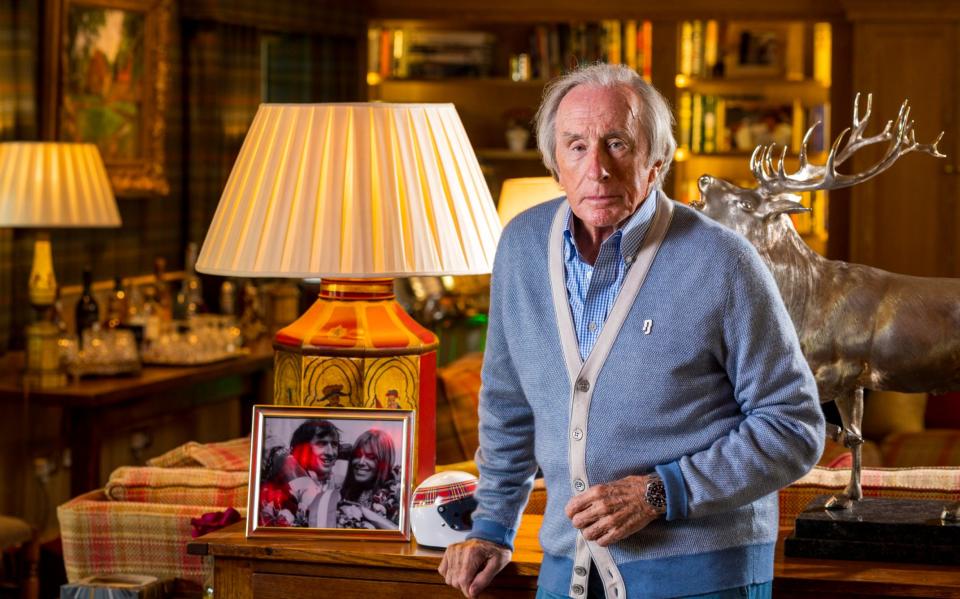
The charity is funding 17 researchers with multimillionaire Sir Jackie (thought to be worth more than £50 million), believed to have donated at least £2 million of his own money. The charity has teamed up with the James Dyson Foundation, with the inventor’s engineers helping to analyse brain samples on an atomic or molecular level, applying in-house equipment and expertise usually targeted at battery research. Dyson’s wife, Deirdre Hindmarsh, now acts as mentor to the PhD students.
We are speaking a day after a drug breakthrough for dementia patients. Donanemab has been hailed a “turning point in the fight against disease” after being found to slow “clinical decline” by up to 35 per cent in Alzheimer’s patients, allowing people with the disease to continue day-to-day tasks such as shopping, housekeeping, managing their finances and taking medication. It came after Lecanemab, another amyloid-targeting drug, was found to slow cognitive decline in early-stage Alzheimer’s patients by 27 per cent in a clinical trial last year.
Sir Jackie is calling on the Government to approve the medication for use in Britain “faster than they’ve ever done anything before”. But he cautions: “What we’ve got now is something which delays the symptoms, but it’s not a cure.
“If it had been offered to Helen, we would have taken it right away. I’m not pessimistic about it but it’s a cure we need. And I’m confident we will find one.” Sadly it will be too late for Lady Stewart, whose deterioration has been marked in recent months. “Five o’clock at night, she’ll be out of conversation, not just quietness but unable to say anything,” sighs Sir Jackie.
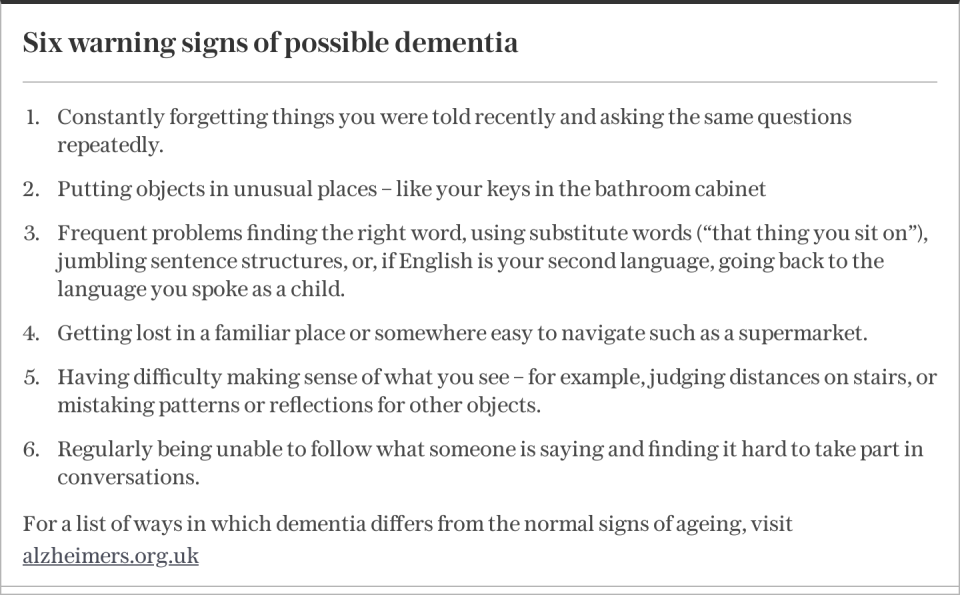
“Today we were sitting with a friend having lunch and we were chatting about Sean Connery, who was a good friend. Sean had dementia. And Helen gasped and said: ‘He didn’t have dementia’. And I said: ‘Yes darling’. She said: ‘How’s Sean’, and I said: ‘Sean died baby’. And she was about to cry.
“There are things she’s no longer finding normal. I saw for the first time today that she hasn’t been going into her study at all. We’ve got a lovely drawing room, and a very nice TV room but Helen will be in the conservatory. She doesn’t want to sit out in the garden either. It’s upsetting to see her get so upset when she can’t do anything for herself”
Does she still recognise you? “Oh yes. And she knows where she is. We travel together with two nurses. We have specialist care 24 hours a day. I’m lucky I can have the best possible people. I can afford that but that’s only because I was once a racing driver. The homes I go to where others are suffering – it’s so depressing. I’ve got two mechanics who helped me to become world champion – they’ve got dementia and there’s nothing we can do about it. That’s what drives me.
“In Formula One you’d get the best team to identify it and solve it. [Between each Grand Prix there are thousands of changes that take place to make the next race even better.] That’s the kind of thinking we need to apply to this. It’s a race against time.”
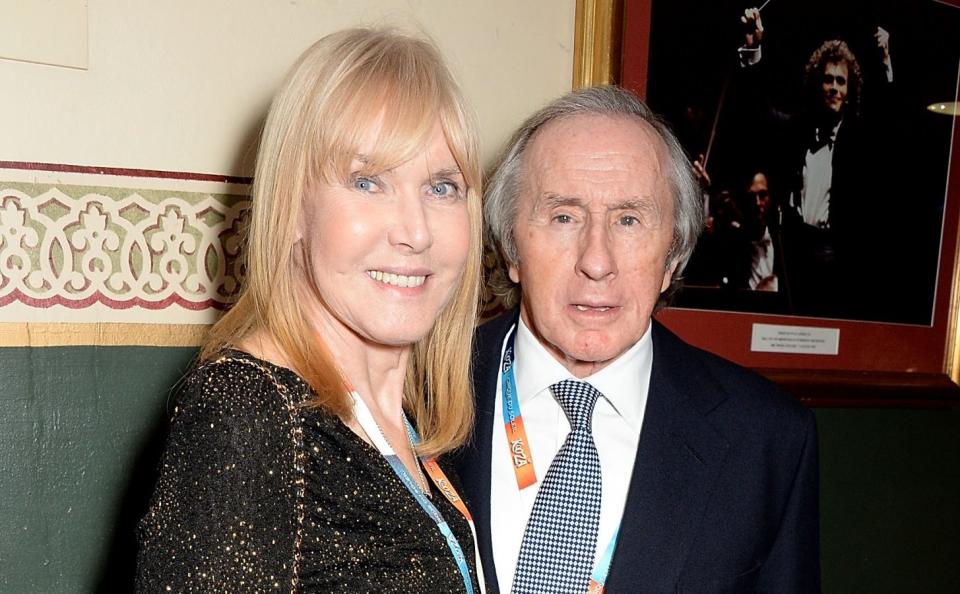
Severely dyslexic but undiagnosed until adulthood, Sir Jackie left school at 16 with no qualifications. “I was poor at school but good at sport,” he says. “A disaster – no education at all. I don’t know the Lord’s Prayer. I don’t know the words of the national anthem.
“I can’t read or write. But I’m good at making new things happen.”

 Yahoo Autos
Yahoo Autos 